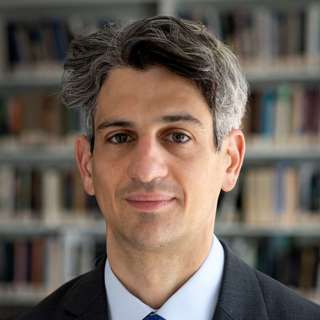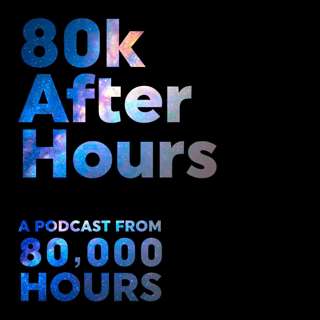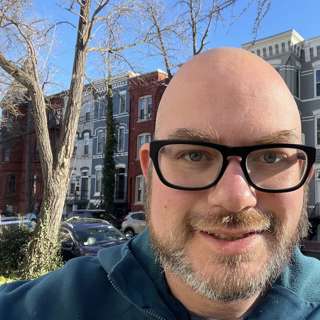
#126 – Bryan Caplan on whether lazy parenting is OK, what really helps workers, and betting on beliefs
Everybody knows that good parenting has a big impact on how kids turn out. Except that maybe they don't, because it doesn't.Incredible though it might seem, according to today's guest — economist Bryan Caplan, the author of Selfish Reasons To Have More Kids, The Myth of the Rational Voter, and The Case Against Education — the best evidence we have on the question suggests that, within reason, what parents do has little impact on how their children's lives play out once they're adults.Links to learn more, summary and full transcript. Of course, kids do resemble their parents. But just as we probably can't say it was attentive parenting that gave me my mother's nose, perhaps we can't say it was attentive parenting that made me succeed at school. Both the social environment we grow up in and the genes we receive from our parents influence the person we become, and looking at a typical family we can't really distinguish the impact of one from the other. But nature does offer us up a random experiment that can let us tell the difference: identical twins share all their genes, while fraternal twins only share half their genes. If you look at how much more similar outcomes are for identical twins than fraternal twins, you see the effect of sharing 100% of your genetic material, rather than the usual 50%. Double that amount, and you've got the full effect of genetic inheritance. Whatever unexplained variation remains is still up for grabs — and might be down to different experiences in the home, outside the home, or just random noise. The crazy thing about this research is that it says for a range of adult outcomes (e.g. years of education, income, health, personality, and happiness), it's differences in the genes children inherit rather than differences in parental behaviour that are doing most of the work. Other research suggests that differences in “out-of-home environment” take second place. Parenting style does matter for something, but it comes in a clear third. Bryan is quick to point out that there are several factors that help reconcile these findings with conventional wisdom about the importance of parenting. First, for some adult outcomes, parenting was a big deal (i.e. the quality of the parent/child relationship) or at least a moderate deal (i.e. drug use, criminality, and religious/political identity). Second, parents can and do influence you quite a lot — so long as you're young and still living with them. But as soon as you move out, the influence of their behaviour begins to wane and eventually becomes hard to spot. Third, this research only studies variation in parenting behaviour that was common among the families studied. And fourth, research on international adoptions shows they can cause massive improvements in health, income and other outcomes. But the findings are still remarkable, and imply many hyper-diligent parents could live much less stressful lives without doing their kids any harm at all. In this extensive interview Rob interrogates whether Bryan can really be right, or whether the research he's drawing on has taken a wrong turn somewhere. And that's just one topic we cover, some of the others being: • People’s biggest misconceptions about the labour market • Arguments against open borders • Whether most people actually vote based on self-interest • Whether philosophy should stick to common sense or depart from it radically • Personal autonomy vs. the possible benefits of government regulation • Bryan's perfect betting record • And much more Chapters:Rob’s intro (00:00:00)The interview begins (00:01:15)Labor Econ Versus the World (00:04:55)Open Borders (00:20:30)How much parenting matters (00:35:49)Self-Interested Voter Hypothesis (01:00:31)Why Bryan and Rob disagree so much on philosophy (01:12:04)Libertarian free will (01:25:10)The effective altruism community (01:38:46)Bryan’s betting record (01:48:19)Individual autonomy vs. welfare (01:59:06)Arrogant hedgehogs (02:10:43)Producer: Keiran HarrisAudio mastering: Ben CordellTranscriptions: Katy Moore
5 Huhti 20222h 15min

#125 – Joan Rohlfing on how to avoid catastrophic nuclear blunders
Since the Soviet Union split into different countries in 1991, the pervasive fear of catastrophe that people lived with for decades has gradually faded from memory, and nuclear warhead stockpiles have declined by 83%. Nuclear brinksmanship, proxy wars, and the game theory of mutually assured destruction (MAD) have come to feel like relics of another era. Russia's invasion of Ukraine has changed all that. According to Joan Rohlfing — President of the Nuclear Threat Initiative, a Washington, DC-based nonprofit focused on reducing threats from nuclear and biological weapons — the annual risk of a ‘global catastrophic nuclear event'’ never fell as low as people like to think, and for some time has been on its way back up. Links to learn more, summary and full transcript. At the same time, civil society funding for research and advocacy around nuclear risks is being cut in half over a period of years — despite the fact that at $60 million a year, it was already just a thousandth as much as the US spends maintaining its nuclear deterrent. If new funding sources are not identified to replace donors that are withdrawing, the existing pool of talent will have to leave for greener pastures, and most of the next generation will see a career in the field as unviable. While global poverty is on the decline and life expectancy increasing, the chance of a catastrophic nuclear event is probably trending in the wrong direction. Ukraine gave up its nuclear weapons in 1994 in exchange for security guarantees that turned out not to be worth the paper they were written on. States that have nuclear weapons (such as North Korea), states that are pursuing them (such as Iran), and states that have pursued nuclear weapons but since abandoned them (such as Libya, Syria, and South Africa) may take this as a valuable lesson in the importance of military power over promises. China has been expanding its arsenal and testing hypersonic glide missiles that can evade missile defences. Japan now toys with the idea of nuclear weapons as a way to ensure its security against its much larger neighbour. India and Pakistan both acquired nuclear weapons in the late 1980s and their relationship continues to oscillate from hostile to civil and back. At the same time, the risk that nuclear weapons could be interfered with due to weaknesses in computer security is far higher than during the Cold War, when systems were simpler and less networked. In the interview, Joan discusses several steps that can be taken in the immediate term, such as renewed efforts to extend and expand arms control treaties, changes to nuclear use policy, and the retirement of what they see as vulnerable delivery systems, such as land-based silos. In the bigger picture, NTI seeks to keep hope alive that a better system than deterrence through mutually assured destruction remains possible. The threat of retaliation does indeed make nuclear wars unlikely, but it necessarily means the system fails in an incredibly destructive way: with the death of hundreds of millions if not billions. In the long run, even a tiny 1 in 500 risk of a nuclear war each year adds up to around an 18% chance of catastrophe over the century. In this conversation we cover all that, as well as: • How arms control treaties have evolved over the last few decades • Whether lobbying by arms manufacturers is an important factor shaping nuclear strategy • The Biden Nuclear Posture Review • How easily humanity might recover from a nuclear exchange • Implications for the use of nuclear energy Chapters:Rob’s intro (00:00:00)Joan’s EAG presentation (00:01:40)The interview begins (00:27:06)Nuclear security funding situation (00:31:09)Policy solutions for addressing a one-person or one-state risk factor (00:36:46)Key differences in the nuclear security field (00:40:44)Scary scenarios (00:47:02)Why the US shouldn’t expand its nuclear arsenal (00:52:56)The evolution of nuclear risk over the last 10 years (01:03:41)The interaction between nuclear weapons and cybersecurity (01:10:18)The chances of humanity bouncing back after nuclear war (01:13:52)What we should actually do (01:17:57)Could sensors be a game-changer? (01:22:39)Biden Nuclear Posture Review (01:27:50)Influence of lobbying firms (01:33:58)What NTI might do with an additional $20 million (01:36:38)Nuclear energy tradeoffs (01:43:55)Why we can’t rely on Stanislav Petrovs (01:49:49)Preventing war vs. building resilience for recovery (01:52:15)Places to donate other than NTI (01:54:25)Career advice (02:00:15)Why this problem is solvable (02:09:27)Producer: Keiran HarrisAudio mastering: Ben CordellTranscriptions: Katy Moore
29 Maalis 20222h 13min

#124 – Karen Levy on fads and misaligned incentives in global development, and scaling deworming to reach hundreds of millions
If someone said a global health and development programme was sustainable, participatory, and holistic, you'd have to guess that they were saying something positive. But according to today's guest Karen Levy — deworming pioneer and veteran of Innovations for Poverty Action, Evidence Action, and Y Combinator — each of those three concepts has become so fashionable that they're at risk of being seriously overrated and applied where they don't belong. Links to learn more, summary and full transcript. Such concepts might even cause harm — trying to make a project embody all three is as likely to ruin it as help it flourish. First, what do people mean by 'sustainability'? Usually they mean something like the programme will eventually be able to continue without needing further financial support from the donor. But how is that possible? Governments, nonprofits, and aid agencies aim to provide health services, education, infrastructure, financial services, and so on — and all of these require ongoing funding to pay for materials and staff to keep them running. Given that someone needs to keep paying, Karen tells us that in practice, 'sustainability' is usually a euphemism for the programme at some point being passed on to someone else to fund — usually the national government. And while that can be fine, the national government of Kenya only spends $400 per person to provide each and every government service — just 2% of what the US spends on each resident. Incredibly tight budgets like that are typical of low-income countries. 'Participatory' also sounds nice, and inasmuch as it means leaders are accountable to the people they're trying to help, it probably is. But Karen tells us that in the field, ‘participatory’ usually means that recipients are expected to be involved in planning and delivering services themselves. While that might be suitable in some situations, it's hardly something people in rich countries always want for themselves. Ideally we want government healthcare and education to be high quality without us having to attend meetings to keep it on track — and people in poor countries have as many or more pressures on their time. While accountability is desirable, an expectation of participation can be as much a burden as a blessing. Finally, making a programme 'holistic' could be smart, but as Karen lays out, it also has some major downsides. For one, it means you're doing lots of things at once, which makes it hard to tell which parts of the project are making the biggest difference relative to their cost. For another, when you have a lot of goals at once, it's hard to tell whether you're making progress, or really put your mind to focusing on making one thing go extremely well. And finally, holistic programmes can be impractically expensive — Karen tells the story of a wonderful 'holistic school health' programme that, if continued, was going to cost 3.5 times the entire school's budget. In today's in-depth conversation, Karen Levy and I chat about the above, as well as: • Why it pays to figure out how you'll interpret the results of an experiment ahead of time • The trouble with misaligned incentives within the development industry • Projects that don't deliver value for money and should be scaled down • How Karen accidentally became a leading figure in the push to deworm tens of millions of schoolchildren • Logistical challenges in reaching huge numbers of people with essential services • Lessons from Karen's many-decades career • And much more Get this episode by subscribing to our podcast on the world’s most pressing problems and how to solve them: type 80,000 Hours into your podcasting app. Producer: Keiran Harris Audio mastering: Ben Cordell and Ryan Kessler Transcriptions: Katy Moore
21 Maalis 20223h 9min

#123 – Samuel Charap on why Putin invaded Ukraine, the risk of escalation, and how to prevent disaster
Russia's invasion of Ukraine is devastating the lives of Ukrainians, and so long as it continues there's a risk that the conflict could escalate to include other countries or the use of nuclear weapons. It's essential that NATO, the US, and the EU play their cards right to ideally end the violence, maintain Ukrainian sovereignty, and discourage any similar invasions in the future. But how? To pull together the most valuable information on how to react to this crisis, we spoke with Samuel Charap — a senior political scientist at the RAND Corporation, one of the US's foremost experts on Russia's relationship with former Soviet states, and co-author of Everyone Loses: The Ukraine Crisis and the Ruinous Contest for Post-Soviet Eurasia. Links to learn more, summary and full transcript. Samuel believes that Putin views the alignment of Ukraine with NATO as an existential threat to Russia — a perhaps unreasonable view, but a sincere one nevertheless. Ukraine has been drifting further into Western Europe's orbit and improving its defensive military capabilities, so Putin has concluded that if Russia wants to put a stop to that, there will never be a better time to act in the future. Despite early successes holding off the Russian military, Samuel is sceptical that time is on the Ukrainian side. If the war is to end before much of Ukraine is reduced to rubble, it will likely have to be through negotiation, rather than Russian defeat. The US policy response has so far been largely good, successfully balancing the need to punish Russia to dissuade large nations from bullying small ones in the future, while preventing NATO from being drawn into the war directly — which would pose a horrifying risk of escalation to a full nuclear exchange. The pressure from the general public to 'do something' might eventually cause national leaders to confront Russia more directly, but so far they are sensibly showing no interest in doing so. However, use of nuclear weapons remains a low but worrying possibility. Samuel is also worried that Russia may deploy chemical and biological weapons and blame it on the Ukrainians. Before war broke out, it's possible Russia could have been satisfied if Ukraine followed through on the Minsk agreements and committed not to join the EU and NATO. Or it might not have, if Putin was committed to war, come what may. In any case, most Ukrainians found those terms intolerable. At this point, the situation is even worse, and it's hard to see how an enduring ceasefire could be agreed upon. On top of the above, Russia is also demanding recognition that Crimea is part of Russia, and acceptance of the independence of the so-called Donetsk and Luhansk People's Republics. These conditions — especially the second — are entirely unacceptable to the Ukrainians. Hence the war continues, and could grind on for months or even years until one side is sufficiently beaten down to compromise on their core demands. Rob and Samuel discuss all of the above and also: • The chances that this conflict leads to a nuclear exchange • The chances of regime change in Russia • Whether the West should deliver MiG fighter jets to Ukraine • What are the implications if Sweden and/or Finland decide to join NATO? • What should NATO do now, and did it make any mistakes in the past? • What's the most likely situation for us to be looking at in three months' time? • Can Ukraine effectively win the war? Chapters:Rob’s intro (00:00:00)The interview begins (00:01:40)Putin's true motive (00:02:29)What the West could have done differently (00:07:44)Chances of Ukraine holding out (00:11:40)Chances of regime change in Russia (00:14:59)The good and the bad from the West so far (00:17:55)Should the West deliver MiG fighter jets to Ukraine? (00:19:57)"No-fly zones" (00:21:32)Chances that this conflict leads to a nuclear exchange (00:26:06)What listeners should do (00:36:01)Chances of biological or chemical weapons use (00:37:59)Best realistic outcome from here (00:39:29)Keeping the broader conversation sane (00:49:29)Why not promise to remove sanctions? (00:51:05)Pros and cons of Sweden and FInland joining NATO (00:52:53)The most likely situation in 3 months (00:53:58) Producer: Keiran Harris Audio mastering: Ben Cordell Transcriptions: Katy Moore
14 Maalis 202259min

#122 – Michelle Hutchinson & Habiba Islam on balancing competing priorities and other themes from our 1-on-1 careers advising
One of 80,000 Hours' main services is our free one-on-one careers advising, which we provide to around 1,000 people a year. Today we speak to two of our advisors, who have each spoken to hundreds of people -- including many regular listeners to this show -- about how they might be able to do more good while also having a highly motivating career. Before joining 80,000 Hours, Michelle Hutchinson completed a PhD in Philosophy at Oxford University and helped launch Oxford's Global Priorities Institute, while Habiba Islam studied politics, philosophy, and economics at Oxford University and qualified as a barrister. Links to learn more, summary and full transcript. In this conversation, they cover many topics that recur in their advising calls, and what they've learned from watching advisees’ careers play out: • What they say when advisees want to help solve overpopulation • How to balance doing good against other priorities that people have for their lives • Why it's challenging to motivate yourself to focus on the long-term future of humanity, and how Michelle and Habiba do so nonetheless • How they use our latest guide to planning your career • Why you can specialise and take more risk if you're in a group • Gaps in the effective altruism community it would be really useful for people to fill • Stories of people who have spoken to 80,000 Hours and changed their career — and whether it went well or not • Why trying to have impact in multiple different ways can be a mistake The episode is split into two parts: the first section on The 80,000 Hours Podcast, and the second on our new show 80k After Hours. This is a shameless attempt to encourage listeners to our first show to subscribe to our second feed. That second part covers: • Whether just encouraging someone young to aspire to more than they currently are is one of the most impactful ways to spend half an hour • How much impact the one-on-one team has, the biggest challenges they face as a group, and different paths they could have gone down • Whether giving general advice is a doomed enterprise Chapters:Rob’s intro (00:00:00)The interview begins (00:02:24)Cause prioritization (00:09:14)Unexpected outcomes from 1-1 advice (00:18:10)Making time for thinking about these things (00:22:28)Balancing different priorities in life (00:26:54)Gaps in the effective altruism space (00:32:06)Plan change vignettes (00:37:49)How large a role the 1-1 team is playing (00:49:04)What about when our advice didn’t work out? (00:55:50)The process of planning a career (00:59:05)Why longtermism is hard (01:05:49) Want to get free one-on-one advice from our team? We're here to help. We’ve helped thousands of people formulate their plans and put them in touch with mentors. We've expanded our ability to deliver one-on-one meetings so are keen to help more people than ever before. If you're a regular listener to the show we're especially likely to want to speak with you. Learn about and apply for advising. Get this episode by subscribing to our podcast on the world’s most pressing problems and how to solve them: type 80,000 Hours into your podcasting app. Producer: Keiran Harris Audio mastering: Ben Cordell Transcriptions: Katy Moore
9 Maalis 20221h 36min

Introducing 80k After Hours
Today we're launching a new podcast called 80k After Hours. Like this show it’ll mostly still explore the best ways to do good — and some episodes will be even more laser-focused on careers than most original episodes. But we’re also going to widen our scope, including things like how to solve pressing problems while also living a happy and fulfilling life, as well as releases that are just fun, entertaining or experimental. It’ll feature: Conversations between staff on the 80,000 Hours team More eclectic formats and topics — one episode could be a structured debate about 'human challenge trials', the next a staged reading of a play about the year 2750 Niche content for specific audiences, such as high-school students, or active participants in the effective altruism community Extras and outtakes from interviews on the original feed 80,000 Hours staff interviewed on other podcasts Audio versions of our new articles and research You can find it by searching for 80k After Hours in whatever podcasting app you use, or by going to 80000hours.org/after-hours-podcast.
1 Maalis 202213min

#121 – Matthew Yglesias on avoiding the pundit's fallacy and how much military intervention can be used for good
If you read polls saying that the public supports a carbon tax, should you believe them? According to today's guest — journalist and blogger Matthew Yglesias — it's complicated, but probably not. Links to learn more, summary and full transcript. Interpreting opinion polls about specific policies can be a challenge, and it's easy to trick yourself into believing what you want to believe. Matthew invented a term for a particular type of self-delusion called the 'pundit's fallacy': "the belief that what a politician needs to do to improve his or her political standing is do what the pundit wants substantively." If we want to advocate not just for ideas that would be good if implemented, but ideas that have a real shot at getting implemented, we should do our best to understand public opinion as it really is. The least trustworthy polls are published by think tanks and advocacy campaigns that would love to make their preferred policy seem popular. These surveys can be designed to nudge respondents toward the desired result — for example, by tinkering with question wording and order or shifting how participants are sampled. And if a poll produces the 'wrong answer', there's no need to publish it at all, so the 'publication bias' with these sorts of surveys is large. Matthew says polling run by firms or researchers without any particular desired outcome can be taken more seriously. But the results that we ought to give by far the most weight are those from professional political campaigns trying to win votes and get their candidate elected because they have both the expertise to do polling properly, and a very strong incentive to understand what the public really thinks. The problem is, campaigns run these expensive surveys because they think that having exclusive access to reliable information will give them a competitive advantage. As a result, they often don’t publish the findings, and instead use them to shape what their candidate says and does. Journalists like Matthew can call up their contacts and get a summary from people they trust. But being unable to publish the polling itself, they're unlikely to be able to persuade sceptics. When assessing what ideas are winners, one thing Matthew would like everyone to keep in mind is that politics is competitive, and politicians aren't (all) stupid. If advocating for your pet idea were a great way to win elections, someone would try it and win, and others would copy. One other thing to check that's more reliable than polling is real-world experience. For example, voters may say they like a carbon tax on the phone — but the very liberal Washington State roundly rejected one in ballot initiatives in 2016 and 2018. Of course you may want to advocate for what you think is best, even if it wouldn't pass a popular vote in the face of organised opposition. The public's ideas can shift, sometimes dramatically and unexpectedly. But at least you'll be going into the debate with your eyes wide open. In this extensive conversation, host Rob Wiblin and Matthew also cover: • How should a humanitarian think about US military interventions overseas? • From an 'effective altruist' perspective, was the US wrong to withdraw from Afghanistan? • Has NATO ultimately screwed over Ukrainians by misrepresenting the extent of its commitment to their independence? • What philosopher does Matthew think is underrated? • How big a risk is ubiquitous surveillance? • What does Matthew think about wild animal suffering, anti-ageing research, and autonomous weapons? • And much more Chapters:Rob’s intro (00:00:00)The interview begins (00:02:05)Autonomous weapons (00:04:42)India and the US (00:07:25)Evidence-backed interventions for reducing the harm done by racial prejudices (00:08:38)Factory farming (00:10:44)Wild animal suffering (00:12:41)Vaccine development (00:15:20)Anti-ageing research (00:16:27)Should the US develop a semiconductor industry? (00:19:13)What we should do about various existential risks (00:21:58)What governments should do to stop the next pandemic (00:24:00)Comets and supervolcanoes (00:31:30)Nuclear weapons (00:34:25)Advances in AI (00:35:46)Surveillance systems (00:38:45)How Matt thinks about public opinion research (00:43:22)Issues with trusting public opinion polls (00:51:18)The influence of prior beliefs (01:05:53)Loss aversion (01:12:19)Matt's take on military adventurism (01:18:54)How military intervention looks as a humanitarian intervention (01:29:12)Where Matt does favour military intervention (01:38:27)Why smart people disagree (01:44:24)The case for NATO taking an active stance in Ukraine (01:57:34)One Billion Americans (02:08:02)Matt’s views on the effective altruism community (02:11:46)Matt’s views on the longtermist community (02:19:48)Matt’s struggle to become more of a rationalist (02:22:42)Megaprojects (02:26:20)The impact of Matt’s work (02:32:28)Matt’s philosophical views (02:47:58)The value of formal education (02:56:59)Worst thing Matt’s ever advocated for (03:02:25)Rob’s outro (03:03:22)Producer: Keiran HarrisAudio mastering: Ben CordellTranscriptions: Katy Moore
16 Helmi 20223h 4min

#120 – Audrey Tang on what we can learn from Taiwan’s experiments with how to do democracy
In 2014 Taiwan was rocked by mass protests against a proposed trade agreement with China that was about to be agreed without the usual Parliamentary hearings. Students invaded and took over the Parliament. But rather than chant slogans, instead they livestreamed their own parliamentary debate over the trade deal, allowing volunteers to speak both in favour and against.Instead of polarising the country more, this so-called 'Sunflower Student Movement' ultimately led to a bipartisan consensus that Taiwan should open up its government. That process has gradually made it one of the most communicative and interactive administrations anywhere in the world.Today's guest — programming prodigy Audrey Tang — initially joined the student protests to help get their streaming infrastructure online. After the students got the official hearings they wanted and went home, she was invited to consult for the government. And when the government later changed hands, she was invited to work in the ministry herself.Links to learn more, summary and full transcript. During six years as the country's 'Digital Minister' she has been helping Taiwan increase the flow of information between institutions and civil society and launched original experiments trying to make democracy itself work better. That includes developing new tools to identify points of consensus between groups that mostly disagree, building social media platforms optimised for discussing policy issues, helping volunteers fight disinformation by making their own memes, and allowing the public to build their own alternatives to government websites whenever they don't like how they currently work. As part of her ministerial role Audrey also sets aside time each week to help online volunteers working on government-related tech projects get the help they need. How does she decide who to help? She doesn't — that decision is made by members of an online community who upvote the projects they think are best. According to Audrey, a more collaborative mentality among the country's leaders has helped increase public trust in government, and taught bureaucrats that they can (usually) trust the public in return. Innovations in Taiwan may offer useful lessons to people who want to improve humanity's ability to make decisions and get along in large groups anywhere in the world. We cover: • Why it makes sense to treat Facebook as a nightclub • The value of having no reply button, and of getting more specific when you disagree • Quadratic voting and funding • Audrey’s experiences with the Sunflower Student Movement • Technologies Audrey is most excited about • Conservative anarchism • What Audrey’s day-to-day work looks like • Whether it’s ethical to eat oysters • And much more Chapters:Rob’s intro (00:00:00)The interview begins (00:02:04)Global crisis of confidence in government (00:07:06)Treating Facebook as a nightclub (00:10:55)Polis (00:13:48)The value of having no reply button (00:24:33)The value of getting more specific (00:26:13)Concerns with Polis (00:30:40)Quadratic voting and funding (00:42:16)Sunflower Student Movement (00:55:24)Promising technologies (01:05:44)Conservative anarchism (01:22:21)What Audrey’s day-to-day work looks like (01:33:54)Taiwanese politics (01:46:03)G0v (01:50:09)Rob’s outro (02:05:09)Producer: Keiran HarrisAudio mastering: Ben CordellTranscriptions: Katy Moore
2 Helmi 20222h 5min






















